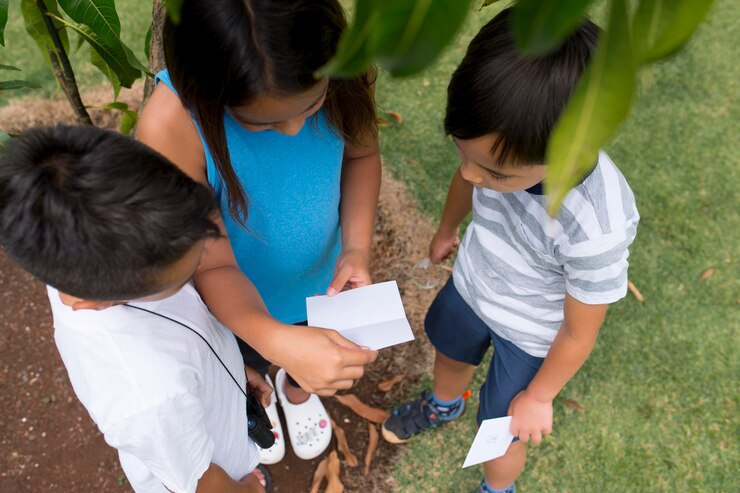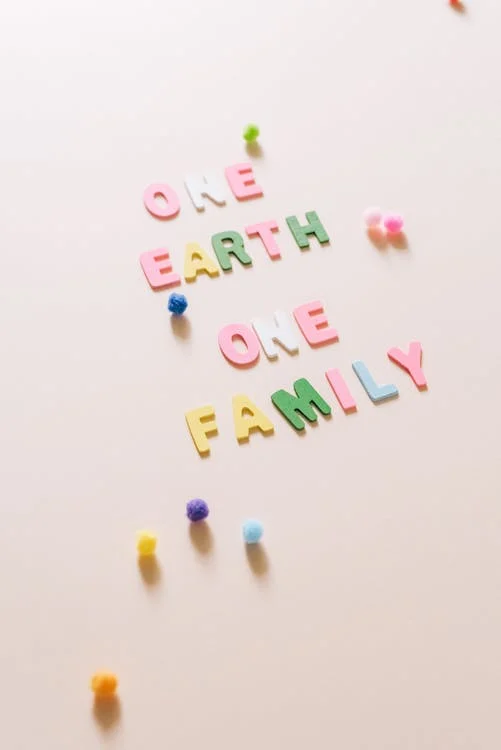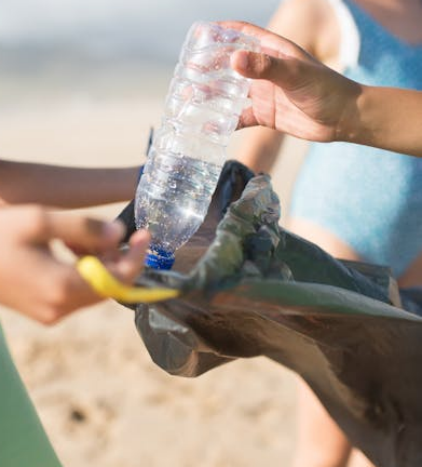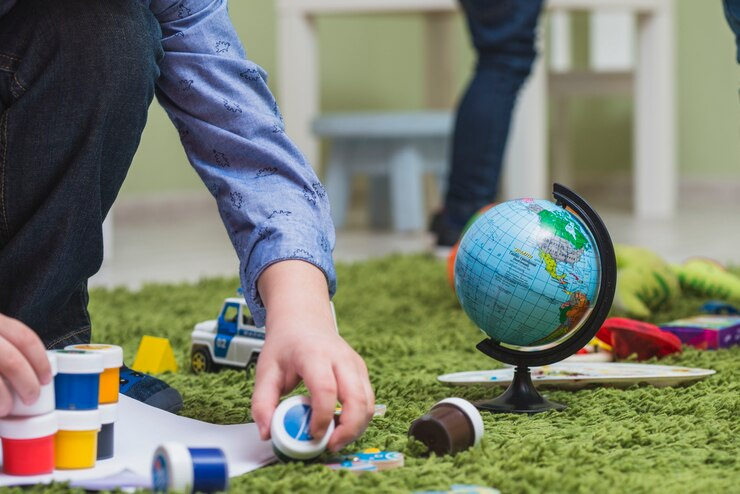In recent years, the importance of environmental sustainability has gained tremendous momentum across sectors. Education, especially special education, plays a crucial role in this movement by instilling eco-friendly values in young learners. Integrating eco-friendly practices into the curriculum can be particularly beneficial for students with special needs, as it provides them with hands-on learning experiences while promoting responsibility, self-awareness, and connection with the natural world. This blog will delve into strategies that schools can employ to bring sustainability into the classroom and explore how students with special needs can benefit from a green curriculum.
1. Why Sustainability Matters in Special Education
For students in special education, learning about sustainability is more than just an academic exercise; it’s a life skill that promotes independence, social responsibility, and emotional growth. Sustainability education not only raises environmental awareness but also helps students build valuable skills such as problem-solving, teamwork, and decision-making. Integrating eco-friendly practices in education is a powerful way for schools to support both the cognitive and emotional development of special needs students, giving them the tools to actively contribute to their communities and environment.
Furthermore, eco-friendly practices often require a hands-on approach, which can be incredibly beneficial for students with autism, ADHD, and other learning disabilities. Activities such as gardening, recycling, and composting provide sensory engagement and structure that can be both calming and educational, allowing students to explore at their own pace. In settings like special needs schools, integrating these practices can make learning more inclusive and enjoyable for students of all abilities.

2. Teaching Sustainability Through Routine Activities
Many eco-friendly habits can be seamlessly incorporated into the school day through routine activities, making them accessible and easy for students with special needs to adopt. Here are a few ways teachers can introduce sustainability into their daily classroom routines:
- Recycling: Introduce recycling by setting up designated bins for paper, plastic, and metal waste. Use color-coded bins or visual cues to help students recognize where different materials go. Teachers can make recycling a daily or weekly class activity, helping students develop a sense of responsibility and organization.
- Energy Conservation: Small actions like turning off lights when leaving a room or using natural sunlight as much as possible can go a long way. Teachers can assign a “light monitor” each week, encouraging students to take turns ensuring lights are off in unoccupied rooms.
- Water Conservation: Schools can teach students about water conservation by encouraging them to turn off taps completely and use water sparingly. Educators can create posters with easy-to-understand graphics to remind students of these practices, making water conservation a natural part of their routines.
These small actions help create a foundation for sustainable habits that students can carry into their lives outside of school. Schools like KARUNA School for Special Needs, which emphasize individual growth, can implement these activities to create a structured yet flexible approach that allows each student to learn at their own pace.

3. Eco-Friendly Projects and Activities
One of the best ways to teach eco-friendly practices is through hands-on projects and activities that engage students in learning about sustainability in a fun, interactive way. Here are some eco-friendly projects that can work well for students in special education centers.
- Gardening and Planting Trees: Gardening can be a therapeutic activity for students with special needs. Setting up a small school garden allows students to learn about plant growth, photosynthesis, and the importance of green spaces. Schools can assign each student a plant to take care of, teaching responsibility and patience while connecting with nature.
- Composting: Composting organic waste can teach students about waste reduction and soil health. Schools can set up compost bins in classrooms or outdoor areas where students can deposit fruit peels and other compostable waste. This also provides students with a sensory-rich experience that promotes an understanding of natural cycles and decomposition.
- Environmental Art Projects: Art is a powerful medium through which students can learn about the environment. Schools can organize art projects that use recycled materials, teaching students to see the value in items that might otherwise be discarded. These projects encourage creativity, resourcefulness, and an appreciation for repurposing.
Each of these projects can be adapted to suit the needs of students across a wide range of abilities, making them ideal for inclusive classrooms in autism schools.

4. Integrating Technology for a Greener Classroom
The digital age has brought about various tools that can support both eco-friendly practices and effective learning for special needs students. Using technology to reduce paper usage, for instance, is one way to make classrooms more sustainable. Here’s how schools can leverage technology for an eco-friendly, inclusive classroom:
- Digital Learning Tools: Using tablets and computers instead of printed materials can significantly reduce paper waste. Interactive apps and games can also help students learn about sustainability in a way that is both engaging and accessible.
- Virtual Field Trips: While physical field trips to parks and wildlife reserves are beneficial, virtual field trips can offer an alternative that reduces the carbon footprint associated with transportation. Students can explore rainforests, oceans, and other ecosystems through virtual tours, learning about biodiversity and conservation without leaving the classroom.
- Energy-Efficient Devices: Schools can invest in energy-efficient laptops and tablets that use less power. These devices help reduce electricity consumption, reinforcing the importance of conserving resources for students.
Best special needs schools the use of technology can create a more adaptable and eco-friendly learning environment, especially for students with physical or sensory limitations.
5. Community Engagement and Eco-Friendly Field Trips
Learning about sustainability is not limited to the classroom. Schools can also organize community-focused activities and eco-friendly field trips that give students a chance to see real-world applications of what they’ve learned. Examples include:
- Visiting Recycling Centers: Taking students on a field trip to a local recycling center can provide a behind-the-scenes look at how waste is processed and recycled. This experience can be eye-opening and encourage students to be mindful of their own waste disposal habits.
- Participating in Clean-Up Drives: Organizing a campus or community clean-up day teaches students the importance of a clean environment while promoting teamwork and civic responsibility. Schools can partner with local organizations to ensure the safety and accessibility of these events for students with special needs.

- Volunteer Programs: Schools can encourage students to volunteer in local environmental projects, such as tree planting or community gardens. These activities offer a sense of accomplishment and belonging, promoting self-esteem and resilience among students.
6. Adapting Eco-Friendly Practices for Individual Needs
It’s important to remember that every student in a special education setting has unique needs and abilities. For example, some students may have sensory sensitivities that make certain textures or sounds uncomfortable. Schools must be prepared to adapt eco-friendly practices in ways that accommodate these needs. Here are a few strategies:
- Alternative Materials for Sensory Sensitivities: If gardening soil feels unpleasant to some students, teachers can offer gloves or explore alternative, more sensory-friendly activities such as hydroponic gardening. This provides a controlled, soil-free environment where students can learn about plant growth without tactile discomfort.
- Creating Visual and Auditory Accommodations: Visual aids and auditory instructions are essential for many students with special needs. For instance, visual charts depicting recycling processes or composting cycles can help students understand concepts more clearly. Schools can use sound cues to remind students to turn off lights or taps, promoting conservation in a way that accommodates diverse learning styles.
In autism schools , these accommodations ensure that every student, regardless of their sensory preferences or cognitive abilities, can participate in eco-friendly activities comfortably and confidently.
7. Long-Term Benefits of Eco-Friendly Education
Teaching sustainability in special education yields long-term benefits that extend beyond the school years. Students who learn to care for the environment from a young age carry these values into adulthood, making informed, eco-conscious choices in their everyday lives. This education can also foster a sense of agency and self-worth in special needs students, helping them feel that they can make a positive difference in the world.
In special education programs, the integration of eco-friendly practices can be transformative, creating a positive impact on students, families, and communities. By promoting these values, schools are not only preparing students to be environmentally conscious but also empowering them to be active participants in a sustainable future.

8. Collaboration with Families and the Community
To maximize the impact of eco-friendly practices in special education, collaboration with families and the broader community is essential. Engaging parents and caregivers in sustainability initiatives can reinforce the lessons taught in the classroom and create a supportive network that extends beyond school. Here are some effective strategies for fostering this collaboration:
Organizing parent workshops focused on eco-friendly practices provides families with tools and resources to support sustainability at home. By offering sessions on composting, gardening, and energy conservation techniques, parents gain valuable insights that empower them to actively participate in their children’s learning process. This involvement reinforces the importance of sustainability, creating a cohesive approach that extends beyond the school environment.
Building partnerships with local environmental organizations enhances sustainability initiatives by providing additional resources and expertise. Inviting guest speakers to share knowledge about eco-friendly practices and collaborating on community projects fosters meaningful connections. Engaging with local eco-groups during clean-up drives or tree-planting events allows students to participate in hands-on activities that reinforce their classroom learning in real-world contexts.
Initiating sustainability challenges involving families and the community creates excitement and engagement. A month-long challenge to reduce waste, conserve water, or use public transportation motivates families to work together toward a common goal. Providing incentives, such as certificates or recognition at school assemblies, celebrates participants and their achievements, inspiring ongoing participation.
Celebrating the successes of students and families in sustainability efforts creates a sense of community and inspires others to join in. Hosting events or assemblies to showcase eco-friendly projects, such as gardens or recycling programs, motivates students while instilling a sense of belonging and accomplishment among families. Recognizing achievements builds momentum and encourages ongoing commitment to sustainable practices.
Through collaboration with families and the community, a holistic approach to sustainability is achieved, empowering students with special needs. This interconnectedness fosters a culture of environmental responsibility, ensuring that lessons learned in the classroom resonate in students’ homes and communities.
Partnering with KARUNA School for Special Needs
As an institution dedicated to fostering growth, independence, and confidence in children with unique needs, KARUNA School for Special Needs stands out as a leader in special education. Our holistic approach to learning, combined with eco-friendly practices, provides students with the tools they need to lead fulfilling, sustainable lives. KARUNA’s focus on personalized education, small class sizes, and specialized support ensures that every child receives the attention and guidance they deserve.
Explore the eco-friendly, inclusive learning environment at KARUNA Best Special Education Schools Hyderabad. Join us in building a brighter, sustainable future for your child by fostering environmental responsibility and personal growth through specialized education.
